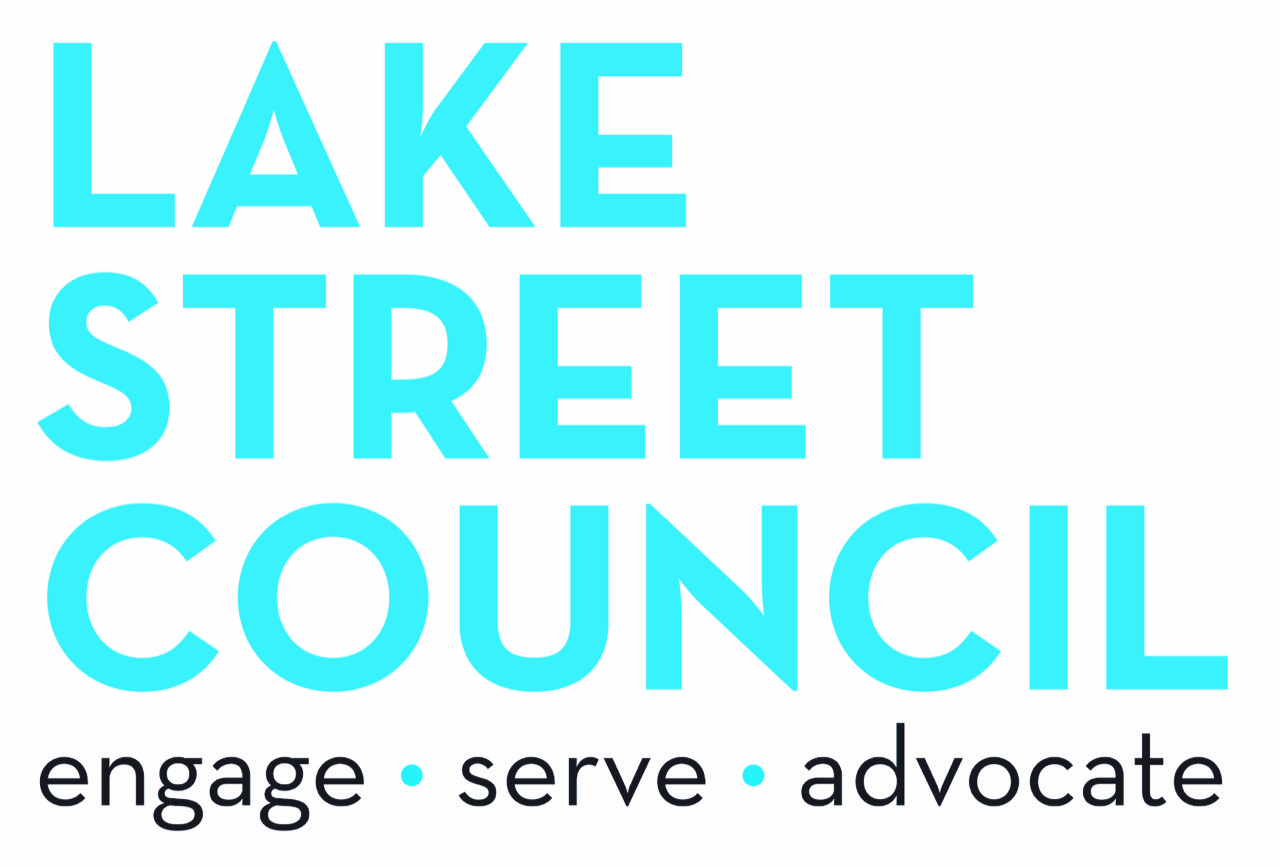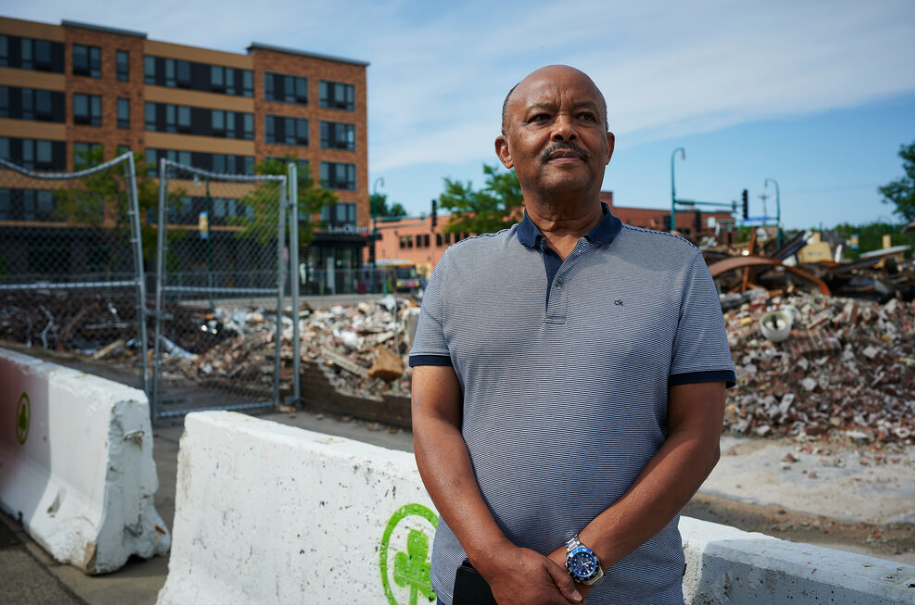One year ago, more than 400 Lake Street businesses were damaged or destroyed in the civil unrest that erupted in the aftermath of George Floyd’s murder. During this time, the Tunheim team was privileged to support Lake Street Council as it grappled with communication challenges including hundreds of local, national and international media requests and the launch of a massive recovery effort. Lani Jordan recently caught up with Lake Street Council Executive Director Allison Sharkey to see how the community is faring one year later.
What does Lake Street look and feel like today in comparison to a year ago?
Lake Street is starting to get its vibe back. This week I was at our office inside the Midtown Global Market, and in front of the market, the patio at Eastlake Brewery was hopping.
The rubble from last year has been cleaned up. Looking out from those patio seats, however, in one direction you’ll see a new building under construction and in the other you’ll see a grassy lot that used to be a store. What you probably won’t realize is that behind each of those grassy lots, community organizations and entrepreneurs are figuring out how to rebuild. Some of the projects being dreamed up are quite exciting, from a theater connected to a restaurant, to a co-working space for Black creative entrepreneurs.
Lake Street Council was the recipient of an astonishing $11 million dollars in contributions from individuals and organizations around the world. How have you distributed that money given the great need?
Our community was so blessed to received support from over 70,000 contributors. First, we set up a committee of community representatives to determine funding priorities. We invested $7 million in emergency relief grants that allowed businesses to make repairs, replace equipment and inventory, and reopen. Another $1 million has been invested in grants and forgivable loans to help owners plan how to redevelop their properties in line with community values, and to keep property in local hands. The remainder has been allocated to fund redevelopment projects, attract customers and other critical needs.
How did Lake Street Council have to change its focus in the aftermath of last year’s civil unrest?
When the first damage happened a year ago, we put up a fundraiser page, thinking we could raise a few thousand dollars to support businesses. We were shocked when We Love Lake Street went viral, pulling in $11 million in a matter of weeks. We previously had four staff and a budget of $500,000 a year! We immediately had to learn – through trial and error – how to be a disaster relief organization, how to be a foundation and how to be a community spokesperson in national media. We were so fortunate to have the support of prominent local companies like Tunheim who volunteered their expertise in areas like PR, financial management, and construction.
Did the Chauvin guilty verdict mean a collective sigh of relief on Lake Street and allow you to move forward with more optimism?
Absolutely. Our community has a LOT of hard work to do to eliminate the disparities that plague Minneapolis, but the verdict certainly did relieve a lot of the tension we all felt and allowed us to turn our focus to bringing customers back.
What are Lake Street business owners’ greatest needs today?
Customers! Sales are still down due to COVID-19, changes in work patterns, and people’s uncertainly about whether Lake Street is open for business. We are helping business owners update and maximize their online presence so that people know they are open. But we also need everyone to commit to supporting small businesses on Lake Street, as well as the businesses that you love closer to home. Without all of us, they may not be here next year.
A year ago, you said your vision was that Lake Street would remain a home for immigrant and minority-owned businesses, as well as a place where people can come to start a business, experience the vitality of life and be embraced by a warm and welcoming community. Do you remain on track to achieve that?
The community was initially really concerned that demolished properties would be sold to investors from outside the community that would build higher-end buildings our local businesses couldn’t afford to rent. That hasn’t happened so far. Most owners, many of whom are immigrants, really want to rebuild and provide space for local entrepreneurs. A big challenge, however, is that it’s really expensive to build a new building. To recoup your costs, you’ve either got to charge high rents, or lower your construction expense. We are working to reduce the cost of rebuilding through subsidized financing from federal and state agencies. So far, however, no federal or state funds have been allocated for rebuilding. We need to see a commitment of support by the end of the summer to stay on track.
How has the last year changed you personally?
When COVID first hit, it was nerve-racking, but also rewarding, to spend so much time at home with my kids, baking and gardening and doing puzzles. Then the civil unrest hit and my responsibilities were suddenly so great – I haven’t baked a loaf of bread with the kids since!
One upside is that I have really developed as a leader this year. That includes new skills and confidence in everything from financial management, to coaching employees, to public speaking (thanks to Tunheim for the training!).
Most of all, I am in complete awe of our business owners. They have been through incredible stress. But they haven’t given up. They keep showing up, determined to support their employees and customers. We need to be there for them, too.

Allison Sharkey, Lake Street Council Executive Director







